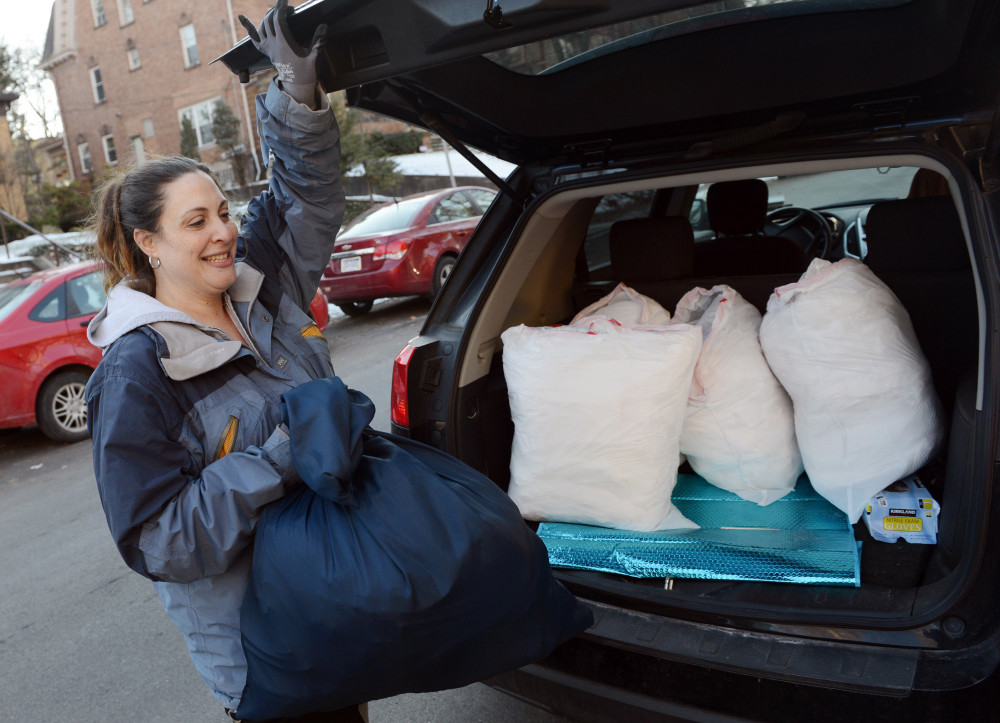By Kim Lyons
Pittsburgh Post-Gazette.
PITTSBURGH
In a typical week, Ilene Scoratow does 30 loads of laundry, cleans two to four apartments and delivers groceries to at least four regular customers.
She has three children of her own, including an infant. But in her free time after her day job, Scoratow runs a service called Another Mother, where she performs some of the basic tasks one might expect of a parent.
“I was reading a book on entrepreneurship because I wanted to start my own business,” Scoratow said. All the advice she read suggested sticking with something you’re good at. “So I thought about it: I like to teach and I like being a mom.”
She started about a year ago and sticks primarily to Pittsburgh neighborhoods near her home. From 6:30 a.m. to 3 p.m., she goes to her day job as an elementary school Spanish teacher.
At 3 p.m., she takes whatever appointments she has that afternoon from her business. She’s not working entirely alone; her husband helps with the day-to-day business and at home, and she has brought two other teachers on as independent contractors.
Currently she has a clientele of about 40 people, including younger working professionals and university students. “It’s pretty evenly split among Pitt, Carnegie Mellon and Duquesne and Chatham,” she said, referring to several schools in the area.
While she’s done some modest local advertising, Scoratow says most of her referrals are via word-of-mouth. She charges an $8 delivery fee for groceries and $1.50 per pound of laundry. New customers, most of whom come to her via her website, pay a $20 deposit via Paypal, then she invoices them for the balance after she’s finished the job.
The personal chore business is no longer just the domain of professional maid services, but has become a fast-growing part of the so-called sharing economy.
For instance, San Francisco-based Taskrabbit lets users outsource small jobs and errands like food deliveries and furniture assembly via a smartphone app. Homejoy, also based in San Francisco, offers home cleaning services. Neither one offers its services yet in Pittsburgh.
Another Mother’s true target audience, whether students or young professionals, is millennials, a generation that gets a lot of bad press for the perception that they’re too dependent on their parents and may be taking a long time to transition into adulthood successfully. A 2012 Clark University study found some 30 percent of the parents of millennials, loosely defined as 18- to 29-year-olds, provide at least occasional financial support to their children.
Scoratow dismisses any suggestion that her clientele is lazy or that they’re unable or unwilling to fend for themselves. “I think some people don’t want to ask for help,” she said. She points out that in parts of the city with heavy student and young professional populations there are sometimes logistical challenges to keeping things clean.
“A lot of them who call say there isn’t a good laundromat near them on the South Side, or near their campus in Oakland,” she said.
Natalia Hudleson, who gets groceries delivered from Another Mother, loves the services, but admits she struggled a little at first with the concept of letting someone else handle chores.
“I come from a background where I had a mom who stayed home and had a very strong sense that these are the kinds of things you don’t get extra help for, that it’s part of running a household,” she said. “But I work full time, and sometimes it’s worth it to get that extra help.”
Hudleson said she was a little skeptical when she first signed up for the grocery delivery, but was “blown away” by how thorough Scoratow was.
“I wasn’t necessarily expecting much, but I gave her an order and thought, ‘OK, I’ll send her to Trader Joe’s,'” she said. “I am super picky, and I know Trader Joe’s really well and I was really specific: which kind of olive oil I wanted, which kind of orange juice. It was just great.”
For her part, Scoratow is gearing up for the end of the semester, which she says was her busiest period last year. She hopes to eventually expand, starting with other areas of the city. “I would love to make this full time, to see this become a success,” she said.
Hudleson said she thinks demand for these kinds of services provides is only going to grow. “This is the new economy, where people who have time help out those who don’t have time,” she said. “It helps balance out the work load.”
___














































































































































































































































































































































































